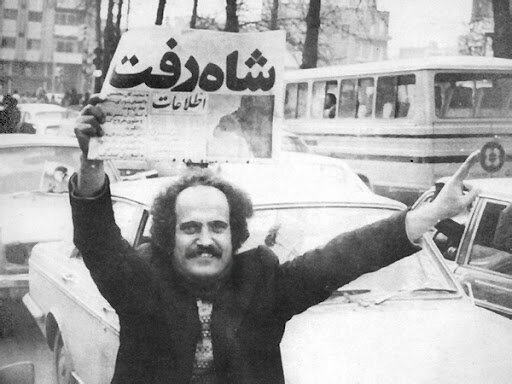
India’s capital markets watchdog has unearthed a sophisticated trading web linking a convicted stock market manipulator, a Singapore-based trader, and a US fund’s confidential orders. This alleged front-running scheme, involving Ketan Parekh and Rohit Salgaocar, has brought the regulator's unrelenting pursuit of financial malpractice into the spotlight. The Securities and Exchange Board of India (Sebi) found that Parekh and Salgaocar executed “illicit" trades using confidential, non-public information (NPI) about substantial stock orders from a US-based foreign portfolio investor (FPI), referred to as the “Big Client.
" With unlawful profits totalling 65.77 crore, Sebi has acted swiftly to dismantle the network exploiting insider information. breaks down the development.

Who are the key players? : A Singapore-based trader who allegedly served as the linchpin, passing non-public information about substantial impending trades by a prominent overseas fund—referred to as the Big Client—to Ketan Parekh, a known market manipulator. : Infamous for orchestrating the 2001 stock market scam that caused a market crash, Parekh manipulated stock prices using borrowed funds. He was banned from participating in the securities market for 14 years and is now implicated in facilitating manipulative trades using insider information.
: A group of six entities that executed trades based on the NPI provided by Parekh. These included brokerages such as GRD Securities Ltd and Salasar Stock Broking Ltd, as well as individuals like Anirudh Damani and his uncle Ashok Damani. Firms like Basukinath Properties Pvt Ltd and APR Properties Ltd also leveraged their trading accounts to profit from this scheme.
: An unnamed US-based fund house actively investing in Indian securities through FPI. The fund's trades were routed through intermediaries, including Nuvama Wealth Management Ltd and Motilal Oswal Financial Services Ltd, making its confidential trade data a prime target for exploitation. When did the investigation take place? The interim order follows an 18-month investigation conducted by Sebi from 1 January 2021, to 20 June 2023.
Sebi identified a prima facie pattern of trades in common scrips involving certain noticees and funds linked to the "Big Client". This triggered further examination to ascertain violations of Sebi regulations. A three-day search and seizure operation began on 22 June 2023, targeting the premises of 17 entities.
During this operation, Sebi collected documentary and electronic evidence and recorded sworn statements. Notably, Sebi also investigated four additional entities but found no evidence of wrongdoing, and their names were excluded from the interim order. What was the suspected modus operandi? The investigation revealed a highly coordinated scheme involving coded communications, insider information, and strategic trading.
: Frontrunners received trade instructions through WhatsApp chats or calls from contacts saved as "Jack," "Jack New," "Jack Latest New," or "Boss," all traced back to Parekh. Parekh, in turn, relied on NPI provided by Salgaocar. : The "Big Client" placed orders specifying scrip name, buy/sell quantity, and price.
For orders routed through Motilal and Nuvama, traders executed these based on Salgaocar's instructions. Salgaocar's company had a referral agreement with Motilal and Nuvama to share brokerage revenue earned from the "Big Client's" trades. : Salgaocar directed the "Big Client's" traders to route orders through Motilal or Nuvama.
He simultaneously used Bloomberg chat to instruct traders at these firms and monitor order execution. NPI regarding impending large trades was relayed from Salgaocar to Parekh, who then directed six frontrunners to execute trades in advance, generating undue profits. sought comments from Motilal and Nuvama regarding the order.
While Motilal declined to comment, Nuvama is yet to respond. What was the effect of such trading? The investigation revealed a significant surge in trading volumes and profits in the accounts of the frontrunners during the period under scrutiny. Sebi noted that over 98% of the trades by frontrunners, in terms of trade value, were executed in cash markets.
Furthermore, approximately 97% of the total profits from these trades originated from cash market transactions. The frontrunners allegedly amassed unlawful gains of 38.7 crore.
Additionally, Salgaocar earned a referral fee or commission of approximately 27.07 crore from trades exclusively linked to the “Big Client". In total, Sebi found that the 22 noticees—including Salgaocar, Parekh, six frontrunners, and facilitators such as individuals receiving trade tips from Parekh and top executives of the —generated cumulative unlawful gains of roughly 65.
77 crore. What did Sebi conclude? Sebi determined that the trading activities of the frontrunners extended beyond traditional front-running, employing more sophisticated strategies driven by non-public information. The conduct of the frontrunners and their associates, including Salgaocar and Parekh, was found to be in violation of the Sebi Act and the Sebi (Prohibition of Fraudulent and Unfair Trade Practices) Regulations.
The investigation revealed that Parekh received NPI about the impending orders of the “Big Client" from Salgaocar and passed trading instructions to frontrunners through facilitators. These frontrunners took positions in specific scrips ahead of the “Big Client’s" large orders. When these substantial orders were placed, the frontrunners executed counter positions designed to match the “Big Client’s" trades.
This strategy allowed the frontrunners to either square off their initial positions or create excess long or short positions in the scrip, which they would then close during the same trading day, generating undue profits in a short span. Sebi also uncovered evidence of unlawful profit-sharing among Salgaocar, Parekh, the frontrunners, and facilitators, conducted through both cash and banking transactions. What actions did Sebi take? Sebi has issued show-cause notices to Salgaocar, Parekh, six frontrunners, and 14 others, including traders and senior executives of the implicated front-running entities.
As an interim measure, has directed the impounding of 65.77 crore in unlawful gains, which were to be deposited into an interest-bearing account. Additionally, Parekh, Salgaocar, and Ashok Poddar—one of the involved traders—were immediately barred from trading in securities or associating with any intermediary registered with Sebi.
Banks holding accounts of the implicated entities have been instructed to freeze debits, allowing only transfers to designated accounts for the recovery of unlawful gains. What is next? The noticees have been given 21 days to respond to Sebi's show-cause notices, providing them an opportunity to either admit to or contest the allegations. Based on their responses and further proceedings, Sebi will issue a final order in the case.
If dissatisfied with Sebi's interim or final order, the noticees have the right to challenge it before the Securities Appellate Tribunal..















